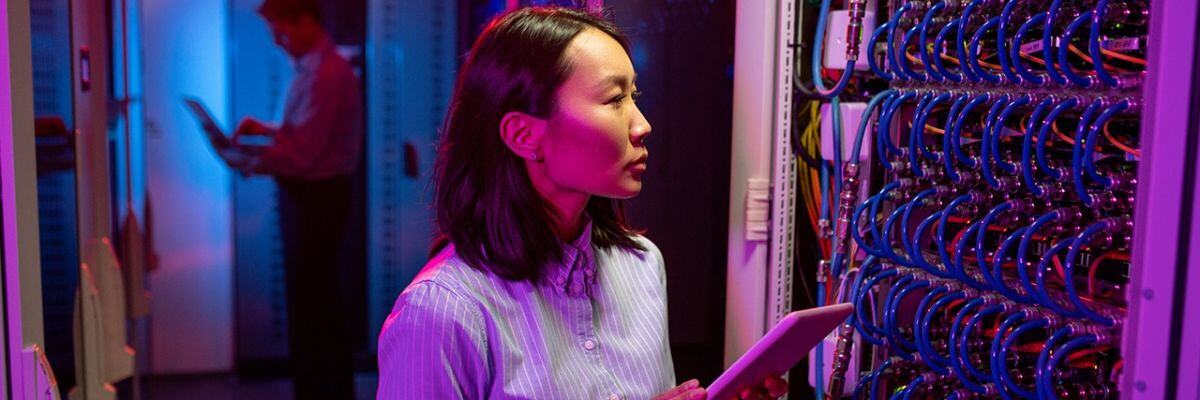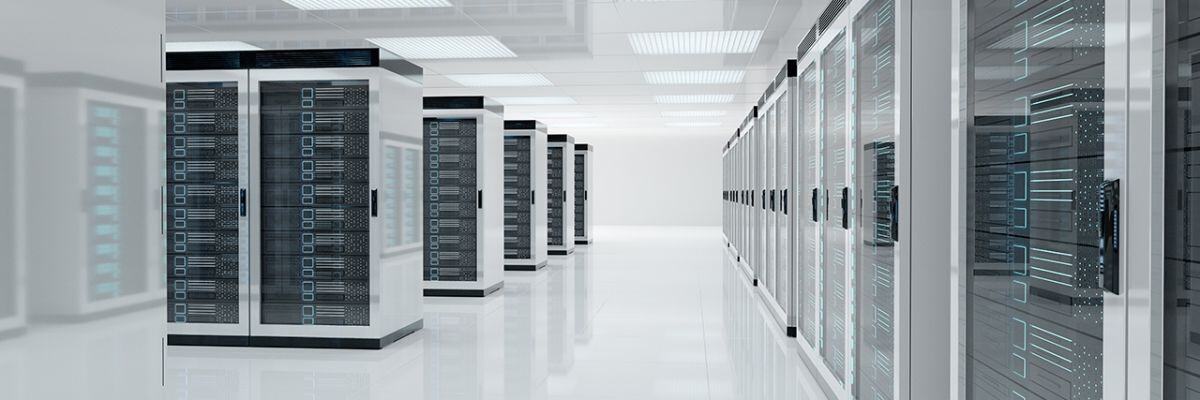Server Maintenance: Where to Keep Your Server
August 11th, 2021 | 4 min. read

Are you struggling with servers? Server maintenance is crucial in data management. You need to know where to keep servers, but different servers need different maintenance. This is a summary to help you know where to keep servers.
Constantly maintaining company equipment is a struggle every business faces. No one wants to replace any furniture or tech hardware earlier because it costs more time and effort. Businesses like yours need maximum efficiency in the equipment they have.

That's why we'll be talking about one of the essential pieces of technology in your company - your server. Intelligent Technical Solutions, a Managed-IT Service Provider, has handled managed the servers of multiple clients and based on our experience, there are three fundamental questions a client should be able to answer.
These are:
- What is a server?
- What types of servers are there?
- How do you maintain your servers?
By the end of this article, you should have a good grasp of maintaining the servers you have or will buy.
What is a server?

A server is a piece of hardware or software that's designed to send data to other computers. It's a place where data is stored for you to retrieve - like a bank for information instead of money.
You need to know many things about servers for your business, the least of which is the different kinds of servers. Some of the most common servers are web servers, database servers, printer servers, and application servers. Their names inform you of what data is stored in it and what it connects to. For example, web servers connect users to websites, while application servers connect users to applications without installing them on their own devices.
Businesses can choose which kind of servers they need. It's a good idea to identify who will be using the servers and why, so there's no waste in buying materials that businesses won't use thoroughly.
Physical vs. Virtual Servers
After deciding what you'll use the servers for and who will use these servers, businesses then need to choose between physical and virtual servers.
There are many different kinds of servers, as mentioned above, but physical servers and virtual servers are the two kinds that tell you where your data is placed. Essentially, if you have hardware you bought to use as a server, you have a physical server. If you paid money for software that stores your data on an off-site data center, you have a virtual server.
Physical and virtual servers have their pros and cons. Physical servers can be secured on-site, with only a few people you give the key to. They don't have recurring fees and will last a long time as long as they're well-maintained. However, they're not easy to scale up, as you need to buy more hardware if you need more storage space.
Virtual servers are a lot less of a hassle when buying hardware and scaling up storage space because you don't have hardware at all! You pay another entity to do all that work for you. They're much easier to maintain but come with the problem of constantly having to pay for the service.
Take a look at the network you have in your business. Do you have a physical or virtual server? Or, if you don't have a server, which one do you plan to get?
How do you store your server properly?
Once you've identified the kind of server you have or want to buy, you need to know how to store and maintain your server. The more things are taken care of, the longer they last.
For virtual servers, storage and maintenance aren't much of an issue. The whole reason you got a virtual server is for the ease of maintenance. At most, you have to think of the organization of the files and the payments for the server.
Physical servers require more care. According to Pharoah Shepherd, an ITS Onsite Technician specializing on network systems management, physical servers need to be kept in a locked room for security. Keeping servers in a locked room is also part of the HIPAA regulations and compliance.
"As far as security is concerned," Pharoah said, "you run the risk of someone being able to access that server, who is not an IT professional, [...] and can potentially cause problems."
Make sure that the room you lock it in is also up to par. Check if there are any leaks on the roof or holes in the wall bugs or rats might get through. Plus, always clean your servers on a set schedule.
Physical servers need to have a regular cleaning routine. You'll be shocked at the things that hole up in server rooms of businesses without a standard cleaning routine. For example, Pharoah has mentioned seeing cables chewed on by rats. Broken wires can cause a fire if you're unlucky, so watch out for the state of your hardware!
And aside from being kept in a locked room, physical servers need to be kept in a well-ventilated space. This helps avoid possible problems with overheating. Overheating is also one of the reasons the battery that runs your physical servers needs to be appropriate for your equipment. The other reason is for the system to be powered appropriately to function well.
And that's just the physical aspect of keeping your server secure! You need to be on the constant lookout for people hacking into your system.
Industry practices should be followed when it comes to the cybersecurity of servers - passwords and encryption services are a must, and you need to keep a close eye on who can access your data. Make sure that the devices they connect to your system aren't compromised.
But what about server replacement?
Despite our best efforts, nothing can last forever. The struggle to maintain company equipment is sometimes a losing battle. Even if you've kept your physical servers stored in a locked, well-ventilated room with a regular cleaning routine, things become outdated or unrepairable. Even virtual servers become unusable if the company maintaining them encounters consistent technical problems!
In our years in business, Intelligent Technical Solutions has replaced our clients' servers often enough that we can help you answer the question "How often should I replace my servers?" Read that article to dive deeper into server maintenance and replacement for your business.
Kharmela Mindanao is a senior content writer for Intelligent Technical Solutions. She’s called Ella by her friends and likes yoga, literature, and mountain climbing. Her favorite book is Anxious People by Fredrik Backman. She creates art and poetry and is on a quest to find the best cheesecake.
Topics: